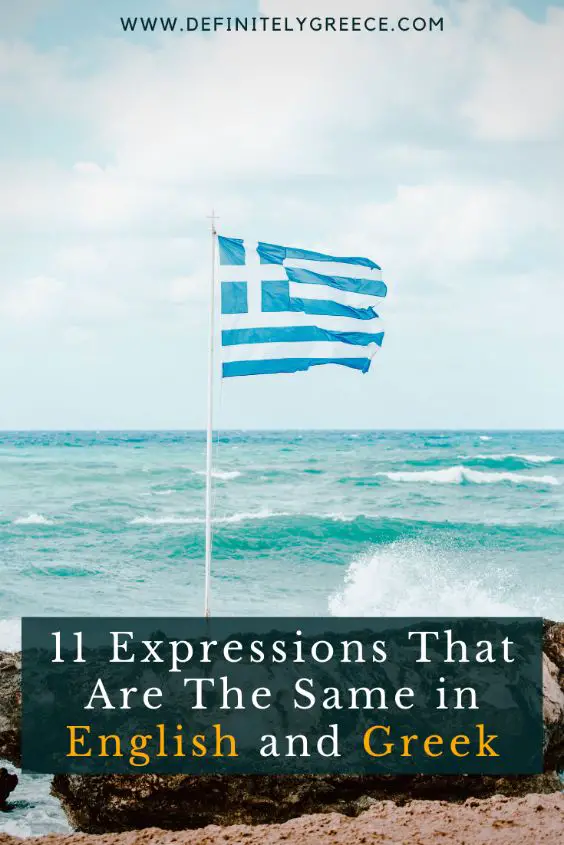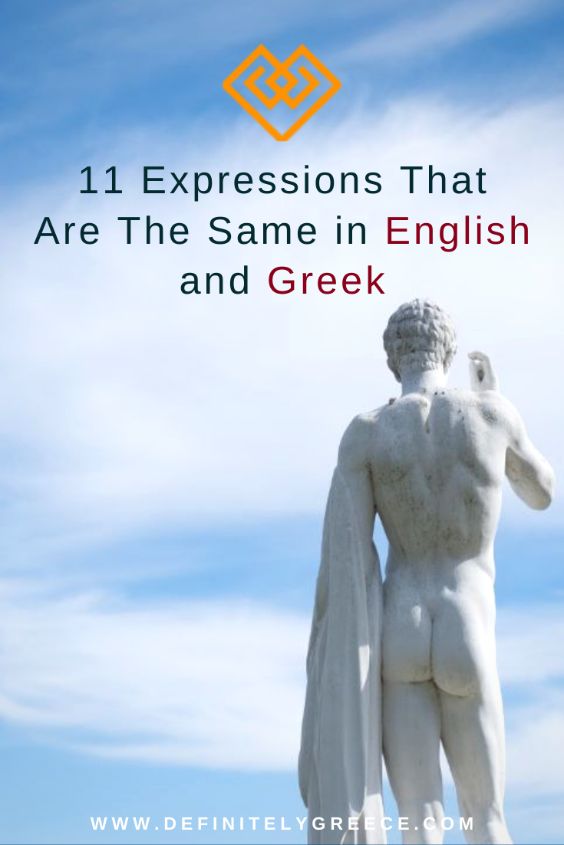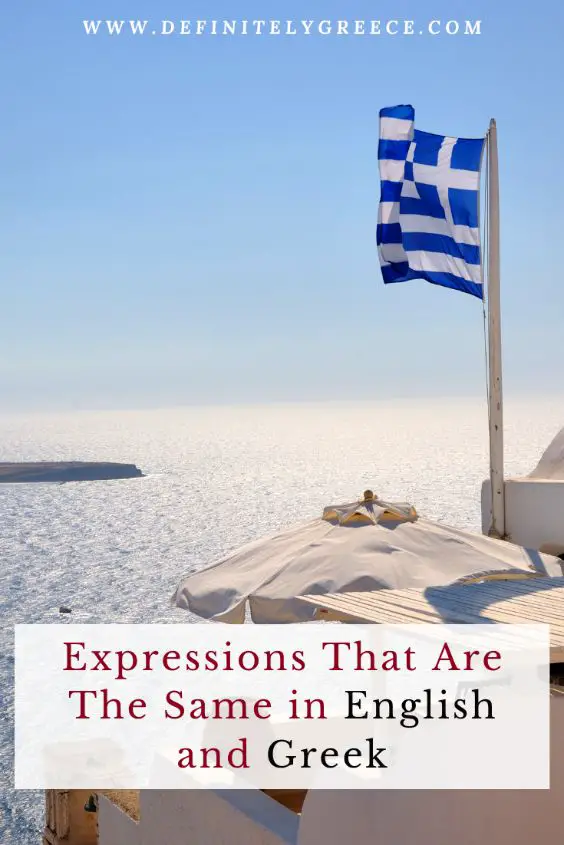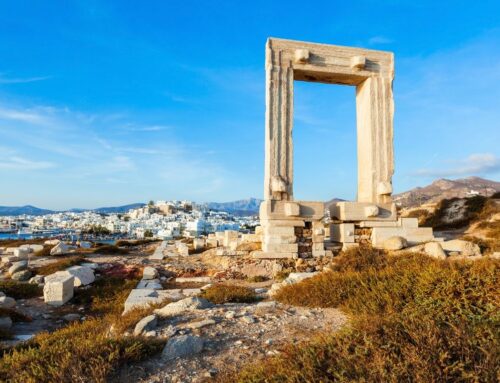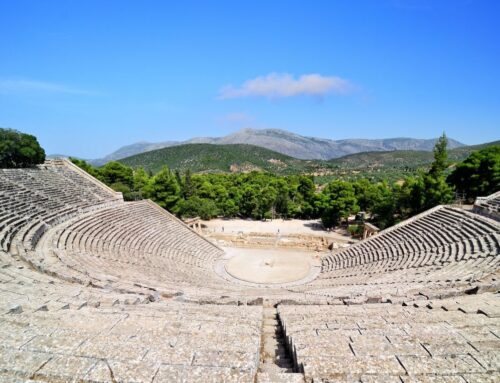11 Expressions That Are The Same in English and Greek
11 Expressions That Are The Same in English and Greek
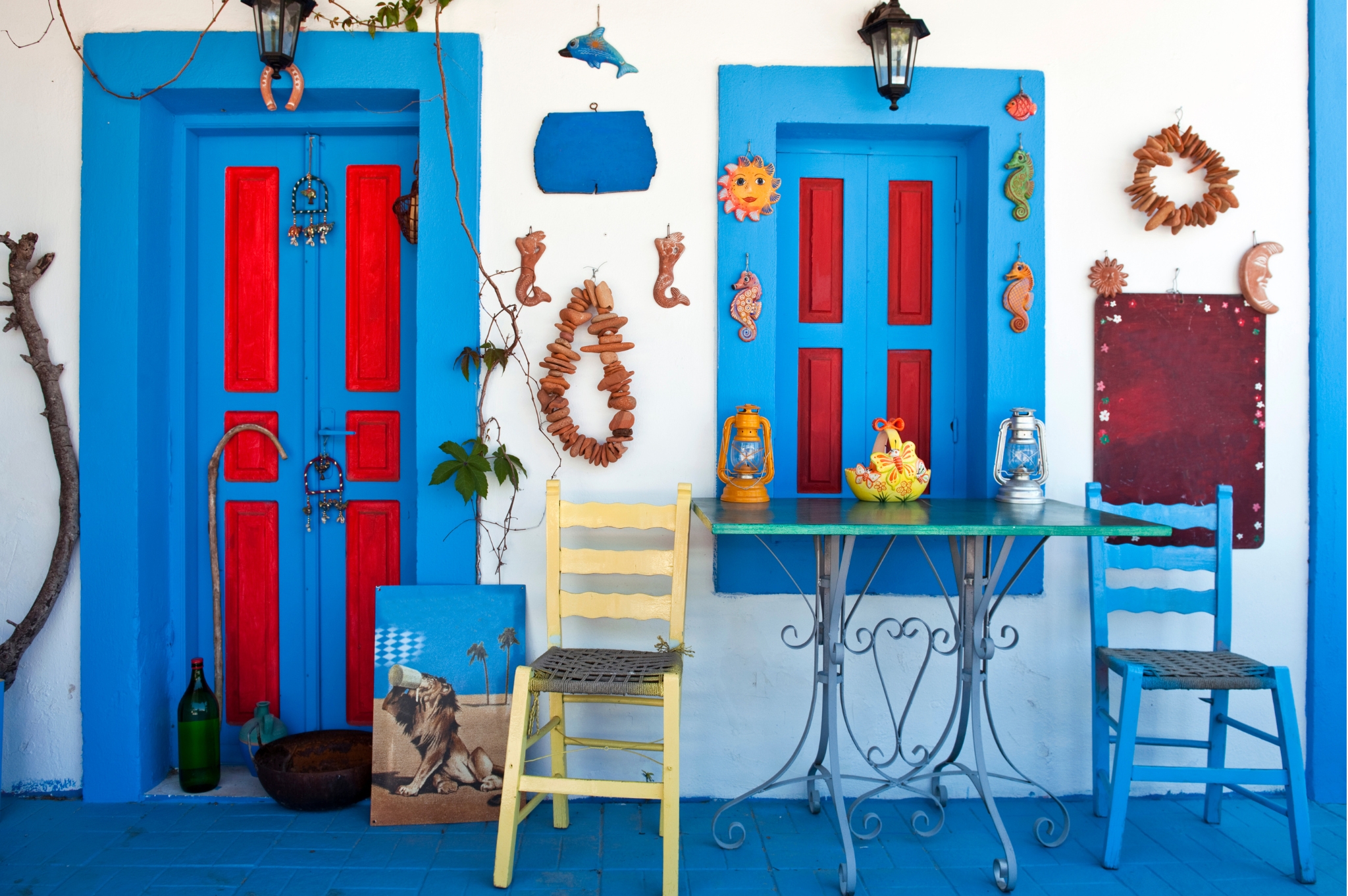
☞ Table of Contents:
Not all popular phrases and proverbs can be translated into other languages! And they also might be pretty hard to understand in general. Not this list! Here we will explore sayings and proverbs that are exactly the same in Greek and English. If you choose to use them, everyone will understand exactly what you mean. No more confused looks!
☞ Related: Greek Words in English That Will Surprise You
Crocodile Tears – Κροκοδείλια Δάκρυα
To weep crocodile tears or κροκοδείλια δάκρυα in Greek is to express insincere remorse. This is such an interesting phrase that is present in a lot of European languages probably due to the once popular belief that crocodiles weep when devouring their prey. The expression may have originated with ancient Greek philosophers but was later used extensively in literature, by writers, poets and philosophers and is even present in opera so it is still a bit of a mystery.
Better Late Than Never – Κάλλιο Αργά Παρά Ποτέ
Better late than never or κάλλιο αργά παρά ποτέ in Greek, expresses the idea that doing something delayed is still better than not doing it at all. The main difference between the Greek and English expression is the degree to which it is can be used sarcastically as a playful way of pointing out someone’s lateness. In English, the origin of the expression is traced to Geoffrey Chaucer and his collection of stories, The Canterbury Tales. In turn, the Greeks trace the origin of this expression to ancient Greek philosopher Socrates. Made fun of for attempting to learn a musical instrument in his later life, Socrates replied “Καλλιον οψιμαθής η αμαθής (παραμένειν) which very broadly can be applied to mean “better late than never”.
Necessarily evil in Greek is “αναγκαίο κάκο”. This is most probably a Greek proverb that is also traced back to Ancient Greece. The first recorded examples of this phrase both in English and Greek use “marriage”, “women” and the “government” as examples of “necessary evils” only the latter of which seems reasonable.
A bit different to the phrases and expressions in this list, this is one saying that is usually accompanied by an action. So, why do we feel compelled to “knock on wood” to prevent something bad we said or heard from manifesting? From Poland, to Spain, Romania to Norway, and Egypt to Georgia, a lot of countries have associations between wood and good luck or protection from bad luck. There are a couple of different origins for this, one of which stems from German folklore and the belief in fairies, spirits and dryads living in trees that could if awakened protect the person that called upon them.
The Walls Have Ears – Oι τοίχοι έχουν αυτιά
There are many stories about how this expression came into being. It is commonly used to warn people not to share sensitive information because it might be overheard.
One of the stories goes back to 400 B.C and the Greek tyrant of Syracuse, Dionysius, who built a cave in the shape of an ear, so he could listen to what people were talking about in other rooms. Similarly, there is another story during the Byzantine times when great general Narses proposed a plan to rebuild the city’s walls that included secret pipes that led underground where the prisons were located. This way the rulers could learn about sensitive information they could then use to their advantage.
An Apple a Day Keeps The Doctor Away – ένα μήλο την ημέρα τον γιατρό τον κάνει πέρα
This expression started to become popular in the 19th century in Wales, with different rhyming versions throughout the years such as “eat an apple on going to bed and you’ll keep the doctor from earning his bread” and “an apple a day, no doctor to pay”. While there is no scientific evidence as yet linking daily consumption of apples to health improvement, apples are rich in vitamin C and have a healthy dose of carbohydrates and dietary fibre so there is no reason not to include them in your diet! While we are not sure how many countries use this expression, it is safe to say that Greeks must like their apples.
Curiosity Killed The Cat – Η περιέργεια σκότωσε τη γάτα
Curiosity killed the cat is translated to “Η περιέργεια σκότωσε τη γάτα” in Greek and is an expression that was actually part of a much bigger phrase that goes like:
“Helter skelter, hang sorrow, care will kill a cat, up-tails all, and a pox on the hangman.”
Gradually “care” meaning “worry” was replaced with “curiosity” a change that was first recorded in an Irish newspaper back in 1868. There are countless superstitions and expressions that revolve around the idea of cats and death which might be why this expression became popular in the 20th century for scaring children and keeping them obedient.
Don’t Look A Gift Horse in the Mouth – Κάποιου του χάριζαν γάιδαρο κι αυτός τον κοίταζε στα δόντια
When you tell someone to “not look a gift horse in the mouth” or in Greek “Κάποιου του χάριζαν γάιδαρο κι αυτός τον κοίταζε στα δόντια” you are basically saying to not be ungrateful for what you have been given and to not over analyse it. While the origin of this proverb is unknown there are traces to an English singer, musician and play writer, employed in the courts of Henry VIII in 1546. The idea is that horses, and donkeys in the Greek version, continue to develop more teeth and so it is possible to assess their age and possible value by examining their mouths.
☞ Related: The Most Useful Greek Phrases To Know Before Visiting Greece
Dropping Like Flies – Πέφτουν σαν τις Μύγες
Another common expression for which we have no clear story of origin. There is a record of it being used in 1906 and it most likely alludes to the short life span of insects.
Eat my Dust – φάε τη σκόνη μου
This English phrase most likely originates from racing events and is used to tease, ridicule or antagonize opponents by implying they will lose. In Greek, the expression is commonly translated as “φάε τη σκόνη μου”.
☞ Related: The Top Ancient Greek History Facts For A Greek History Noob
When you feel like a fish out of water you are so outside your comfort zone that it is hard to feel comfortable. The origin of this expression also comes from English writer Geoffrey Chaucer and his famous stories, The Canterbury Tales, and was used when a shipman had to learn how to ride a horse.
*Disclaimer: This page might include affiliate links. If you decide to book something through one of them, I might get a little bonus, but it won't cost you anything extra.*


